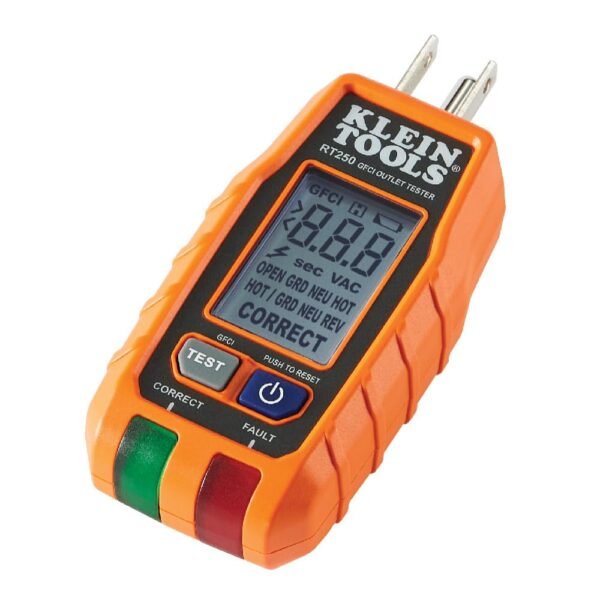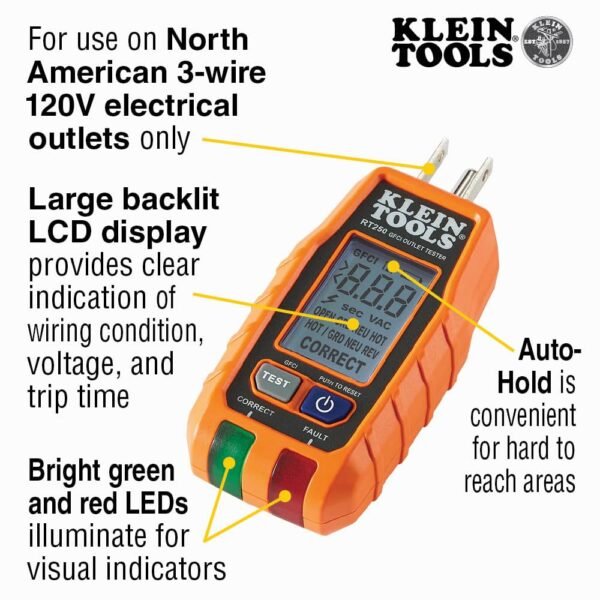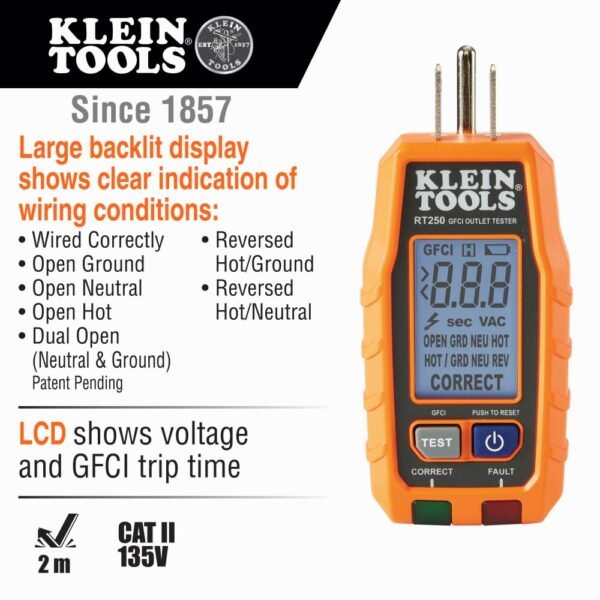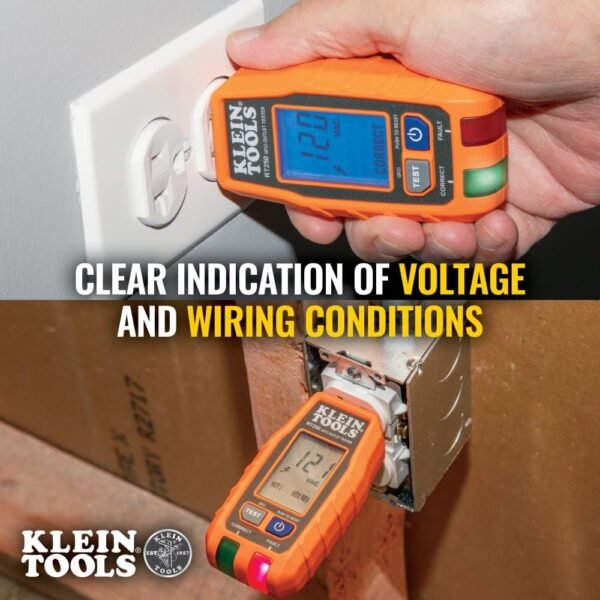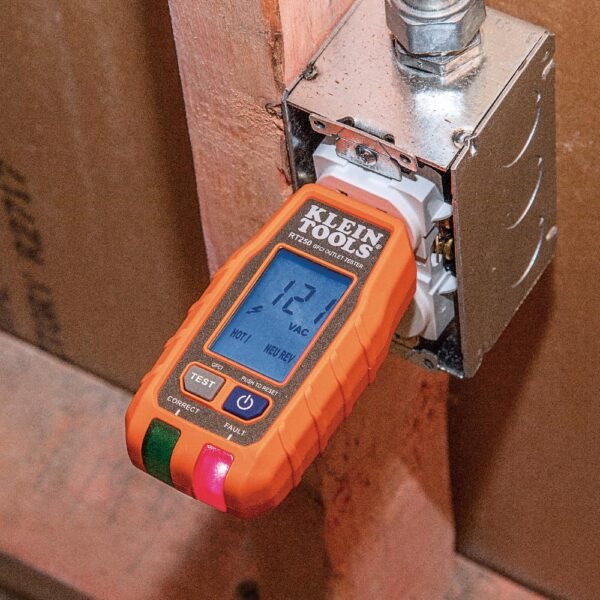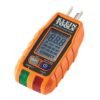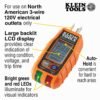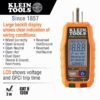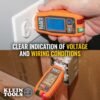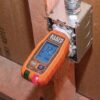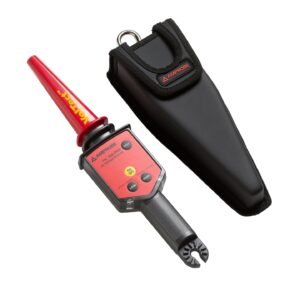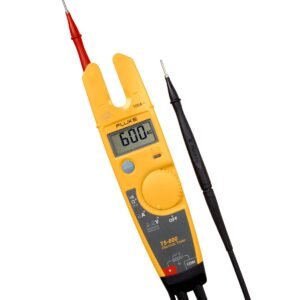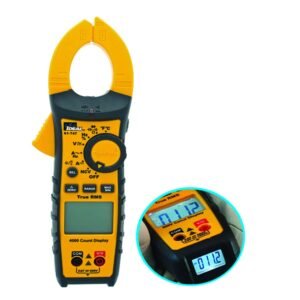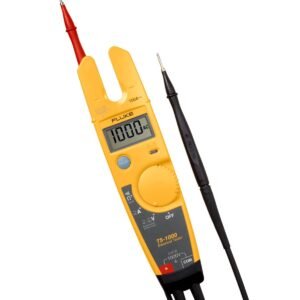Klein Tools RT250 GFCI Outlet Tester Review Clear LCD and Wiring Fault Detection
Klein Tools RT250 GFCI Outlet Tester Review Clear LCD and Wiring Fault Detection
- Clear LCD readout with backlighting makes it effortless to read voltage and wiring status in any lighting condition.
- The tester displays GFCI trip time, helping diagnose issues quickly and accurately.
- Innovative system detects open neutral and open ground faults, which greatly improves safety by pinpointing hidden wiring problems.
- Bright green and red LEDs provide instant visual confirmation of wiring conditions, reducing guesswork during inspections.
As an Amazon Associate I earn from qualifying purchases.
Description
Highlights of the Klein Tools RT250 GFCI Outlet Tester
Using the Klein Tools RT250 GFCI Outlet Tester with LCD Display has been quite the experience. Its large backlit LCD readout is a game-changer, making voltage readings crystal clear even in dimly lit spaces. I often find myself relying on this feature because it’s so much easier to read than the tiny indicator lights on some other testers I’ve owned. The visible green and red LEDs complement the LCD perfectly, offering an immediate visual cue about wiring conditions without needing to squint or guess.
Another standout is the trip time display for GFCI devices. This feature allows me to see exactly how long it takes for the outlet to trip, which has been incredibly helpful for troubleshooting and verifying GFCI functionality. It’s one thing to know if a GFCI trips or not, but knowing the trip time adds a layer of precision that’s hard to beat.
- Large, clear backlit LCD display enhances usability
- Trip time display offers precise GFCI testing
- Bright LED indicators provide quick wiring status feedback
Drawbacks to Consider
No tool is perfect, and this tester has its fair share of limitations. One thing that caught me off guard was the requirement for 2 AAAA batteries. These batteries aren’t exactly common in my household, and although the package includes them, replacements can be a bit tricky to find. It’s a minor annoyance but worth noting if you want to keep the tester ready for use at all times.
The device size is compact, which is generally a plus, but sometimes the grip feels a bit too small for my hands, especially when I’m wearing gloves. The corded electric power source is reliable but limits mobility compared to cordless testers. It’s something to keep in mind if you’re moving around a lot or working in tight spaces.
- Uses uncommon AAAA batteries which may be hard to replace
- Compact size can be less comfortable for larger hands
- Corded design limits mobility during testing
Comprehensive Feature Set
This tester isn’t just about identifying if an outlet is wired correctly; it’s packed with useful functions. I appreciated the patent-pending open neutral and open ground detection system, which gave me confidence in catching less obvious wiring faults. Most testers I’ve used either miss these faults or only provide vague indications.
The auto-hold feature is a thoughtful addition. It’s particularly handy when testing hard-to-reach outlets where you can’t keep a close eye on the display. The tester locks the reading, allowing you to move it away and still review the voltage or fault status comfortably.
The CAT II 135V safety rating reassures me that this tool is built for safe use in typical residential and light commercial environments. Safety is paramount, and this rating meets those expectations nicely.
User Experience and Practicality
I handed the tester off to a few friends and family members who dabble in DIY electrical projects, and the feedback was generally positive. The clear LCD and LED indicators made it easy for even novices to understand wiring issues without needing to interpret complicated codes. My nephew, who is just starting to learn about home wiring, found it intuitive after a quick explanation.
One small gripe was the manual, which could be more detailed in explaining some of the advanced diagnostics. For a professional or seasoned DIYer, it’s straightforward, but beginners might need to look up additional information online or in forums.
Product Comparisons
Compared to other popular receptacle testers I’ve tried, this one holds its own. For example, basic plug-in testers often rely solely on LED combinations to indicate wiring faults, which can be confusing and sometimes inaccurate. The RT250’s digital readout and trip time feature put it a step above these simpler models.
On the downside, some competitors offer wireless or Bluetooth-enabled testers, which can send data directly to your phone or tablet. Those are great for professionals who keep detailed logs or perform frequent inspections. In contrast, this tester sticks to a traditional display, which might feel a bit old-school.
Price-wise, the RT250 sits in the mid-to-upper range, but the enhanced diagnostic features justify that. Cheaper testers won’t catch open neutral or open ground issues reliably, so this one is definitely worth it if accuracy and safety are priorities.
Value Proposition
Considering the features and build quality, this tester delivers good value for money. It’s not the cheapest option on the market but offers more detailed diagnostics than entry-level devices. The inclusion of batteries and the sturdy construction add to the overall package.
For the price, one gets a professional-grade tool that’s reliable and precise, suitable for electricians and serious DIYers alike. The extra safety features and clear display make it a worthwhile investment, especially if you frequently work with GFCI outlets or need to verify wiring conditions comprehensively.
Downsides to Keep in Mind
- Battery type is unusual and might complicate replacements
- Slightly small form factor can feel cramped during extended use
- No wireless connectivity limits modern data logging options
- Instruction manual could use more detail for beginners
Alternative Offerings
There are several other testers in the market, like the Fluke 1AC-A1-II VoltAlert or the Extech CT70, which offer different strengths. The Fluke is renowned for its ruggedness and ease of non-contact voltage detection but lacks the in-depth GFCI trip time analysis found here. The Extech provides multi-function testing including continuity and resistance, which the Klein tester doesn’t handle.
If your primary need is quick voltage detection and minimal setup, those might suffice. However, for anyone needing detailed diagnostics with GFCI trip timing and wiring fault identification, this tester excels. It strikes a balance between professional utility and user-friendly features, making it a solid choice for most electrical troubleshooting tasks.
Additional information
| Brand | Klein Tools |
|---|---|
| Power Source | Corded Electric |
| Style | Receptacle Tester |
| Color | Green,Red |
| Item Weight | 0.26 Pounds |
